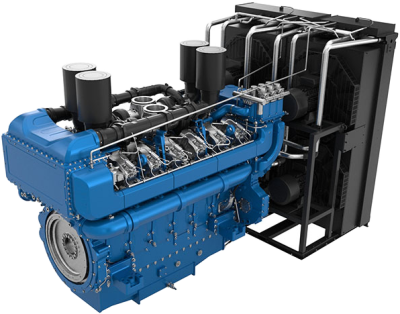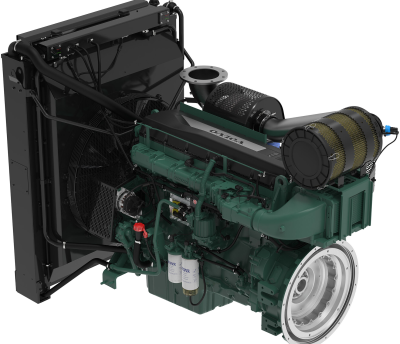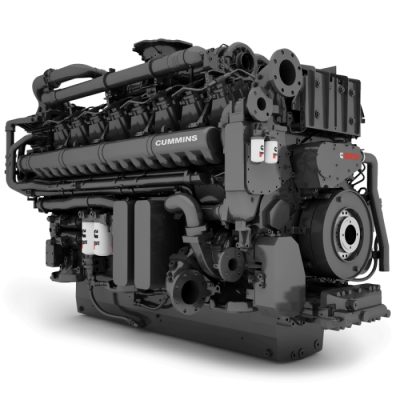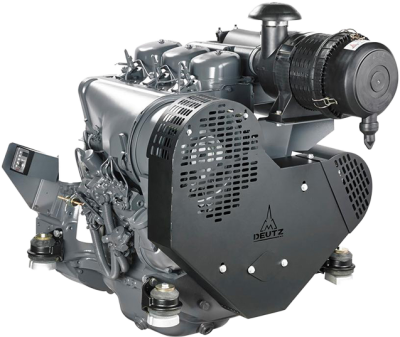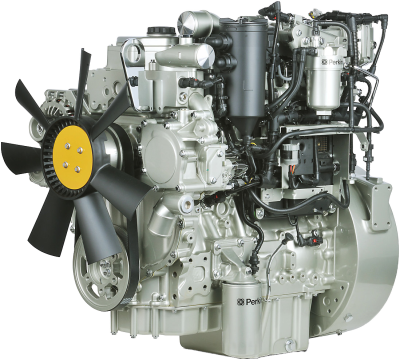Engine is a machine that converts fuel into mechanical energy to perform work. It typically consists of a cylinder block, pistons, crankshaft, and other parts that work together to convert fuel into motion. Internal combustion engines are the most common type of engine, where the fuel is burned inside the engine to produce energy. These engines are used in a wide range of applications, including automobiles, trucks, boats, aircraft, and power generation equipment such as engine-generators. There are several types of internal combustion engines, including gasoline engines, diesel engines, and natural gas engines. Each type of engine has its own unique characteristics and advantages, depending on the application.
Diesel engines are a type of internal combustion engine that are commonly used in a variety of applications, including automobiles, trucks, buses, boats, and power generation equipment.
Here are some key characteristics and advantages of diesel engines:
- Fuel efficiency: Diesel engines are generally more fuel-efficient than gasoline engines, meaning they can travel further on the same amount of fuel. This is because diesel fuel has a higher energy density than gasoline, and diesel engines operate on a compression ignition principle that allows them to extract more energy from the fuel.
- Durability: Diesel engines are typically more durable than gasoline engines, with longer service intervals and fewer maintenance requirements. This is because diesel engines have fewer moving parts and operate at lower speeds, resulting in less wear and tear.
- Power and torque: Diesel engines are known for their high torque output, which makes them well-suited for applications that require heavy towing or hauling. They are also capable of producing high power output, allowing them to perform well in high-performance applications.
- Emissions: Diesel engines typically produce less carbon dioxide than gasoline engines, but they can produce higher levels of nitrogen oxides and particulate matter. However, modern diesel engines are equipped with advanced emissions control systems that can reduce these emissions to very low levels.
- Availability: Diesel fuel is widely available around the world, making diesel engines a popular choice for applications that require reliable and readily available fuel sources.
Overally, diesel engines are a popular choice for a wide range of applications due to their fuel efficiency, durability, power, and availability. They are particularly well-suited for heavy-duty applications such as trucks and power generation equipment, but are also used in many other applications where their unique characteristics provide advantages over other types of engines.
here are some additional details about diesel engines:
- Compression ignition: Diesel engines operate on a compression ignition principle, which means that the fuel is ignited by the heat generated by compressing air in the combustion chamber. This is in contrast to gasoline engines, which use a spark to ignite the fuel.
- Turbocharging: Many diesel engines are equipped with turbochargers, which use the engine's exhaust gases to boost the incoming air supply. This results in increased power output and efficiency, as well as improved throttle response.
- Common rail injection: Modern diesel engines often use a common rail injection system, which delivers fuel to the engine under high pressure. This allows for more precise control over the fuel injection process, resulting in improved fuel efficiency and lower emissions.
- Glow plugs: Diesel engines often require glow plugs to help start the engine in cold weather. These plugs heat up the air in the combustion chamber, making it easier to ignite the fuel.
- Maintenance: Diesel engines typically require less maintenance than gasoline engines, thanks to their simpler design and longer service intervals. However, proper maintenance is still important to ensure optimal performance and longevity.
- Applications: Diesel engines are used in a wide range of applications, including transportation (such as trucks, buses, and boats), construction equipment, agricultural machinery, and power generation equipment. They are also used in some passenger cars, particularly in Europe.
Diesel engines are a versatile and reliable type of internal combustion engine that are widely used in many different applications. Their high torque output and fuel efficiency make them particularly well-suited for heavy-duty applications, while their availability and durability make them a popular choice in many other settings as well.



